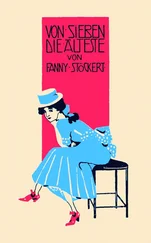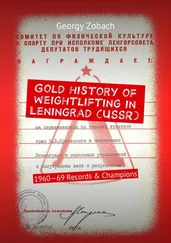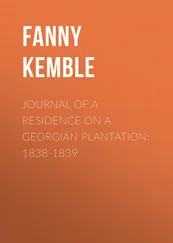Fanny Kemble - Records of a Girlhood
Здесь есть возможность читать онлайн «Fanny Kemble - Records of a Girlhood» — ознакомительный отрывок электронной книги совершенно бесплатно, а после прочтения отрывка купить полную версию. В некоторых случаях можно слушать аудио, скачать через торрент в формате fb2 и присутствует краткое содержание. Жанр: foreign_prose, foreign_antique, на английском языке. Описание произведения, (предисловие) а так же отзывы посетителей доступны на портале библиотеки ЛибКат.
- Название:Records of a Girlhood
- Автор:
- Жанр:
- Год:неизвестен
- ISBN:нет данных
- Рейтинг книги:4 / 5. Голосов: 1
-
Избранное:Добавить в избранное
- Отзывы:
-
Ваша оценка:
- 80
- 1
- 2
- 3
- 4
- 5
Records of a Girlhood: краткое содержание, описание и аннотация
Предлагаем к чтению аннотацию, описание, краткое содержание или предисловие (зависит от того, что написал сам автор книги «Records of a Girlhood»). Если вы не нашли необходимую информацию о книге — напишите в комментариях, мы постараемся отыскать её.
Records of a Girlhood — читать онлайн ознакомительный отрывок
Ниже представлен текст книги, разбитый по страницам. Система сохранения места последней прочитанной страницы, позволяет с удобством читать онлайн бесплатно книгу «Records of a Girlhood», без необходимости каждый раз заново искать на чём Вы остановились. Поставьте закладку, и сможете в любой момент перейти на страницу, на которой закончили чтение.
Интервал:
Закладка:
To return to our Cashiobury walks: T– B– and I used often to go together to visit ladies, the garden round whose cottage overflowed in every direction with a particular kind of white and maroon pink, the powerful, spicy odor of which comes to me, like a warm whiff of summer sweetness, across all these intervening fifty years. Another favorite haunt of ours was a cottage (not of gentility) inhabited by an old man of the name of Foster, who, hale and hearty and cheerful in extreme old age, was always delighted to see us, used to give us choice flowers and fruit out of his tiny garden, and make me sit and sing to him by the half-hour together in his honeysuckle-covered porch. After my first visit to Heath Farm some time elapsed before we went thither again. On the occasion of our second visit Mrs. Siddons and my cousin Cecilia were also Mrs. Kemble's guests, and a lady of the name of H– S–. She had been intimate from her childhood in my uncle Kemble's house, and retained an enthusiastic love for his memory and an affectionate kindness for his widow, whom she was now visiting on her return to England. And so I here first knew the dearest friend I have ever known. The device of her family is "Haut et Bon:" it was her description. She was about thirty years old when I first met her at Heath Farm; tall and thin, her figure wanted roundness and grace, but it was straight as a dart, and the vigorous, elastic, active movements of her limbs, and firm, fleet, springing step of her beautifully made feet and ankles, gave to her whole person and deportment a character like that of the fabled Atalanta, or the huntress Diana herself. Her forehead and eyes were beautiful. The broad, white, pure expanse surrounded with thick, short, clustering curls of chestnut hair, and the clear, limpid, bright, tender gray eyes that always looked radiant with light, and seemed to reflect radiance wherever they turned, were the eyes and forehead of Aurora. The rest of her features were not handsome, though her mouth was full of sensibility and sweetness, and her teeth were the most perfect I ever saw. She was eccentric in many things, but in nothing more so than the fashion of her dress, especially the coverings she provided for her extremities, her hat and boots. The latter were not positively masculine articles, but were nevertheless made by a man's boot-maker, and there was only one place in London where they could be made sufficiently ugly to suit her; and infinite were the pains she took to procure the heavy, thick, cumbrous, misshapen things that as much as possible concealed and disfigured her finely turned ankles and high, arched, Norman instep. Indeed, her whole attire, peculiar (and very ugly, I thought it) as it was, was so by malice prepense on her part. And whereas the general result would have suggested a total disregard of the vanities of dress, no Quaker coquette was ever more jealous of the peculiar texture of the fabrics she wore, or of the fashion in which they were made. She wore no colors, black and gray being the only shades I ever saw her in; and her dress, bare and bald of every ornament, was literally only a covering for her body; but it was difficult to find cashmere fine enough for her scanty skirts, or cloth perfect enough for her short spencers, or lawn clear and exquisite enough for her curious collars and cuffs of immaculate freshness.
I remember a similar peculiarity of dress in a person in all other respects the very antipodes of my friend H–. My mother took me once to visit a certain Miss W–, daughter of a Stafford banker, her very dear friend, and the godmother from whom I took my second name of Anne.
This lady inhabited a quaint, picturesque house in the oldest part of the town of Stafford. Well do I remember its oak-wainscoted and oak-paneled chambers, and the fine old oak staircase that led from the hall to the upper rooms; also the extraordinary abundance and delicacy of our meals, particularly the old-fashioned nine o'clock supper, about every item of which, it seemed to me, more was said and thought than about any food of which I ever before or since partook. It was in this homely palace of good cheer that a saying originated, which passed into a proverb with us, expressive of a rather un nice indulgence of appetite.
One of the ladies, going out one day, called back to the servant who was closing the door behind her: "Tell the cook not to forget the sally-lunns" (a species of muffin) "for tea, well greased on both sides, and we'll put on our cotton gowns to eat them."
The appearance of the mistress of this mansion of rather obsolete luxurious comfort was strikingly singular. She was a woman about sixty years old, tall and large and fat, of what Balzac describes as "un embonpoint flottant," and was habitually dressed in a white linen cambric gown, long and tending to train, but as plain and tight as a bag over her portly middle person and prominent bust; it was finished at the throat with a school-boy's plaited frill, which stood up round her heavy falling cheeks by the help of a white muslin or black silk cravat. Her head was very nearly bald, and the thin, short gray hair lay in distant streaks upon her skull, white and shiny as an ostrich egg, which on the rare occasions of her going out, or into her garden, she covered with a man's straw or beaver hat.
It is curious how much minor eccentricity the stringent general spirit of formal conformity allows individuals in England: nowhere else, scarcely, in civilized Europe, could such a costume be worn in profound, peaceful defiance of public usage and opinion, with perfect security from insult or even offensive comment, as that of my mother's old friend, Miss W–, or my dear H– S–. In this same Staffordshire family and its allies eccentricity seemed to prevail alike in life and death; for I remember hearing frequent mention, while among them, of connections of theirs who, when they died, one and all desired to be buried in full dress and with their coffins standing upright .
To return to Heath Farm and my dear H–. Nobility, intelligence, and tenderness were her predominating qualities, and her person, manner, and countenance habitually expressed them.
This lady's intellect was of a very uncommon order; her habits of thought and reading were profoundly speculative; she delighted in metaphysical subjects of the greatest difficulty, and abstract questions of the most laborious solution. On such subjects she incessantly exercised her remarkably keen powers of analysis and investigation, and no doubt cultivated and strengthened her peculiar mental faculties and tendencies by the perpetual processes of metaphysical reasoning which she pursued.
Between H– S– and myself, in spite of nearly twelve years' difference in our age, there sprang up a lively friendship, and our time at Heath Farm was spent in almost constant companionship. We walked and talked together the livelong day and a good part of the night, in spite of Mrs. Kemble's judicious precaution of sending us to bed with very moderate wax candle ends; a prudent provision which we contrived to defeat by getting from my cousin, Cecilia Siddons, clandestine alms of fine, long, life-sized candles, placed as mere supernumeraries on the toilet table of a dressing-room adjoining her mother's bedroom, which she never used. At this time I also made the acquaintance of my friend's brother, who came down to Heath Farm to visit Mrs. Kemble and his sister. He possessed a brilliant intellect, had studied for the bar, and at the same time made himself favorably known by a good deal of clever periodical writing; but he died too early to have fully developed his genius, and left as proofs of his undoubtedly superior talents only a few powerfully written works of fiction, indicating considerable abilities, to which time would have given maturity, and more experience a higher direction.
Читать дальшеИнтервал:
Закладка:
Похожие книги на «Records of a Girlhood»
Представляем Вашему вниманию похожие книги на «Records of a Girlhood» списком для выбора. Мы отобрали схожую по названию и смыслу литературу в надежде предоставить читателям больше вариантов отыскать новые, интересные, ещё непрочитанные произведения.
Обсуждение, отзывы о книге «Records of a Girlhood» и просто собственные мнения читателей. Оставьте ваши комментарии, напишите, что Вы думаете о произведении, его смысле или главных героях. Укажите что конкретно понравилось, а что нет, и почему Вы так считаете.












